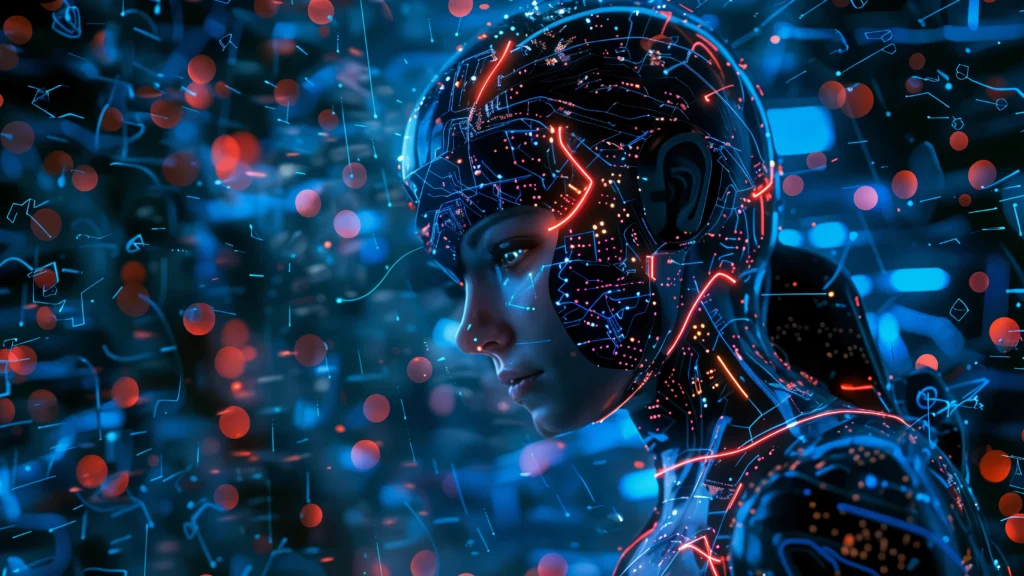Introduction
Technology and artificial intelligence (AI) have become integral parts of our daily lives. From virtual assistants to self-driving cars, AI is shaping the way we interact with the world. This blog explores the latest advancements in technology and AI, their applications, potential benefits, and the ethical considerations surrounding them.
The Evolution of Technology and AI
Technology has evolved rapidly over the past few decades. The journey from early computing machines to the development of sophisticated AI-driven systems has been remarkable. The evolution can be categorized into key phases:
- Early Computing (1940s-1960s): The invention of the first digital computers laid the foundation for modern computing.
- The Internet Boom (1990s-2000s): The rise of the internet revolutionized communication and business operations.
- Big Data and AI (2010s-Present): The emergence of big data analytics and AI-driven decision-making has transformed industries worldwide.
Key AI Technologies Shaping the Future
Several AI technologies are influencing various sectors, including healthcare, finance, education, and entertainment. Some of the most significant advancements include:
1. Machine Learning and Deep Learning
Machine learning (ML) enables systems to learn from data and improve over time without being explicitly programmed. Deep learning, a subset of ML, uses neural networks to mimic human brain functions.
Applications:
- Fraud detection in banking
- Image and speech recognition
- Personalized content recommendations (Netflix, Spotify)
2. Natural Language Processing (NLP)
NLP allows machines to understand, interpret, and generate human language. This technology is behind chatbots, translation tools, and voice assistants like Siri and Alexa.
Applications:
- Customer support automation
- Sentiment analysis in social media
- Real-time language translation
3. Computer Vision
Computer vision enables machines to interpret and process visual data. This technology powers facial recognition systems, autonomous vehicles, and medical imaging analysis.
Applications:
- Self-driving cars
- Smart surveillance systems
- Quality control in manufacturing
4. Robotics and Automation
AI-powered robotics and automation are transforming industries by improving efficiency and reducing human labor costs.
Applications:
- Industrial automation
- AI-driven customer service robots
- Smart home devices
AI in Different Industries
AI is disrupting numerous industries, bringing both opportunities and challenges.
1. Healthcare
AI-driven diagnostics, robotic surgeries, and drug discovery are revolutionizing healthcare.
Examples:
- AI-powered radiology tools detecting diseases with high accuracy
- Wearable health monitoring devices
- AI-driven drug discovery reducing research time
2. Finance
Financial institutions leverage AI for fraud detection, risk assessment, and algorithmic trading.
Examples:
- Chatbots handling customer queries in banking
- AI-driven stock market predictions
- Automated loan approvals
3. Education
AI is enhancing personalized learning experiences and automating administrative tasks in education.
Examples:
- AI-driven tutoring systems
- Automated grading systems
- Personalized learning paths
4. Transportation
Autonomous vehicles, traffic management systems, and AI-powered logistics are improving transportation efficiency.
Examples:
- Self-driving cars reducing road accidents
- AI-driven traffic control reducing congestion
- AI-powered drones for package delivery
5. Entertainment
AI is shaping content creation, gaming, and media consumption experiences.
Examples:
- AI-generated music and art
- Personalized content recommendations
- AI-driven gaming bots

Ethical Considerations in AI
With the rapid advancement of AI, ethical concerns are emerging. Key issues include:
1. Bias and Fairness
AI algorithms can inherit biases from training data, leading to unfair treatment in hiring, lending, and law enforcement.
2. Privacy Concerns
AI-driven surveillance and data collection raise concerns about user privacy and data security.
3. Job Displacement
Automation and AI-driven systems may replace jobs, leading to workforce challenges.
4. AI Weaponization
The use of AI in military applications and cyber warfare poses security risks.
The Future of AI and Technology
The future of AI looks promising with advancements in quantum computing, AI-driven creativity, and human-AI collaboration. Researchers are working on creating ethical AI systems that benefit society while minimizing risks.
Predictions for the Next Decade:
- AI-powered medical breakthroughs
- Widespread adoption of self-driving vehicles
- AI-enhanced education systems
- Stricter AI regulations to ensure ethical use
Conclusion
Technology and AI are shaping the future, bringing immense opportunities and challenges. While AI continues to evolve, ethical considerations and responsible development will be crucial in ensuring its benefits outweigh its risks. By leveraging AI responsibly, we can create a future where technology enhances human capabilities and improves lives worldwide.